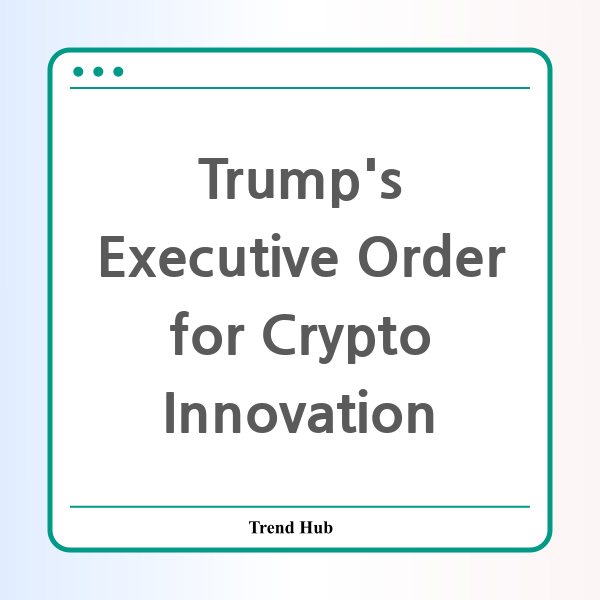* This website participates in the Amazon Affiliate Program and earns from qualifying purchases.

Is the U.S. Ready to Become the Global Crypto Capital?
On January 23, 2025, President Donald J. Trump took a pivotal step in steering the future of digital finance in the United States by signing an Executive Order aimed at establishing the U.S. as a leader in digital financial technology. This significant action promises to reshape the regulatory landscape for cryptocurrencies and digital assets, potentially ushering in a new era of innovation and economic opportunity.
The Executive Order sets up a Presidential Working Group on Digital Asset Markets, charged with the responsibility of developing a comprehensive federal regulatory framework governing digital assets, including the ever-popular stablecoins. This group will also explore the idea of creating a national cryptocurrency stockpile, derived from assets seized through law enforcement actions.
The Role of the Working Group
Chairing this ambitious group is the newly appointed White House AI & Crypto Czar, David Sacks, a venture capitalist known for his significant contributions to the tech industry. The group will include key figures such as the Secretary of the Treasury and the Chairman of the Securities and Exchange Commission (SEC), ensuring that prominent industry voices are included in the discussions.
This initiative not only underscores the administration’s commitment to fostering conditions that empower digital asset innovation, but it also aims to provide regulatory clarity that has been notably absent in the past. By involving experts from outside the government, the Working Group seeks to build regulations informed by the needs and realities of the crypto marketplace.
Key Provisions of the Executive Order
- The prohibition of central bank digital currencies (CBDCs) within the U.S., an action taken to prevent government-controlled digital assets from overshadowing existing cryptocurrencies.
- Efforts to protect banking services for crypto companies, a response to previous regulatory actions that forced many banks to sever ties with digital asset businesses.
- Revocation of the prior administration's Digital Assets Executive Order, which was thought to stifle innovation by imposing excessive regulations.
President Trump's strategy reflects a clear pivot from the previous administration's approach to crypto regulation, which sought to curb potential financial fraud while also protecting consumers. In contrast, this new Executive Order promotes a framework where innovation in the digital asset space can flourish, without the heavy hand of restrictive regulation.
The Implications for the Crypto Industry
The potential impact of Trump’s Executive Order on the crypto landscape cannot be overstated. Should the Working Group successfully implement these new regulations, it could lead to a more favorable environment for cryptocurrencies, allowing them to be integrated more seamlessly into mainstream financial practices. The assurance of banking services for crypto companies signals a significant easing of barriers that many firms faced under previous policies.
Moreover, exploring a national digital asset stockpile could add another layer of legitimacy and security to the crypto market, fostering greater trust from both investors and consumers. The notion of seizing and repurposing digital assets for a national stockpile is still in its infancy and will likely require extensive discussions about legality and practicality.
A Future for Digital Financial Technology
President Trump’s renewed commitment to making the U.S. the “crypto capital of the planet” suggests that the digital financial technology space could see unprecedented growth in the coming years. With a clear directive from the highest levels of government, the American landscape for crypto innovation is poised for transformation, potentially positioning the U.S. as a global leader in a fast-evolving digital economy.
As the Working Group begins its work, all eyes will be on how these initiatives unfold, and how effectively they will lead to real-world implementation. Stakeholders in the crypto industry are anticipating more clarity and support, paving the way for a thriving digital asset ecosystem that contributes to America’s economic prosperity.
* This website participates in the Amazon Affiliate Program and earns from qualifying purchases.